Soviet everyday habits that now seem wild
Our life is not only what is here and now, but also the memory of generations when the upbringing of our parents left marks on each of us. But it’s one thing to remember your childhood, adolescence, and youth. And it’s quite another thing to carry through time the habits that adults taught us.
Whatever one may say, life over the decades has not only changed, but has been turned upside down so much that some features of farming are now perceived as something funny and ridiculous, and sometimes even a little strange.
The content of the article
Fry everything
Soups, borscht, stews, stewed potatoes, sauté - all these dishes were accompanied by fried onions and carrots. Moreover, all this was fried not in refined oil, but in one that was fragrant and not deodorized.
Now such a recipe will horrify fans of healthy eating, who can only afford a drop of oil or even stewing in water alone. However, we didn’t complain then, because it was really tasty and very nutritious, although now such preparation of dishes is not popular.
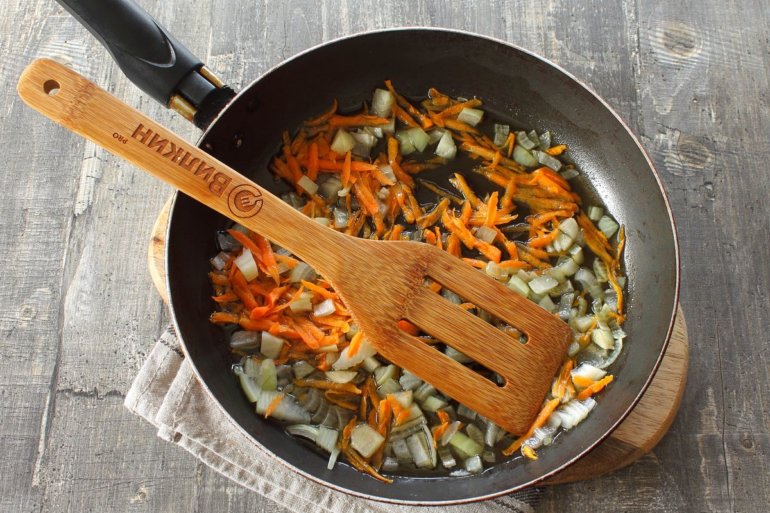
Boil laundry
This habit has not yet left the everyday life of only some people. And literally 20 years ago, boiling laundry was carried out always and everywhere. Boil-out was not the main wash, but only an additional process that helped get rid of old or difficult stains and make things whiter and cleaner.Mostly bedding, underwear, shirts, tulle, and towels were boiled.
Of course, this method had no positive effect on the fabric - it spread and wore out faster. And what can we say about the atmosphere in the house... there is steam, moisture, the acrid smell of some chemical compounds everywhere.
Today, the need for such a barbaric mockery of linen has categorically disappeared. First, there are stain removers and bleaches. Secondly, many washing machines are equipped with a pre-wash function. Thirdly, powders are now of higher quality and efficiency.
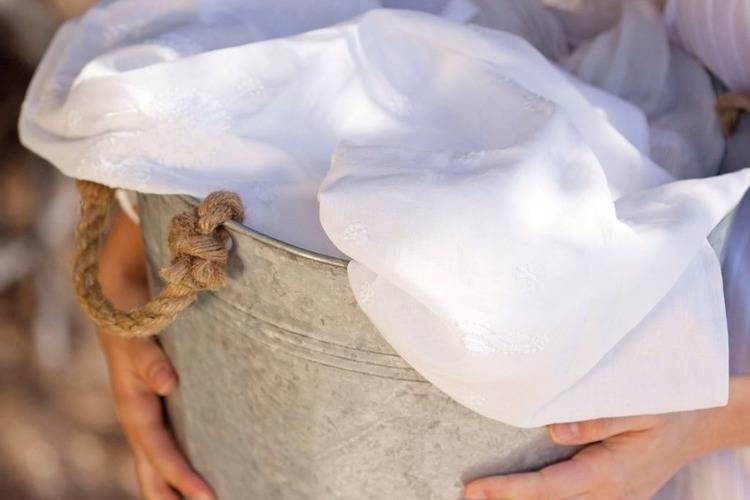
Wash on a special board
This is another hell of a way. Just remember our grandmothers and the suffering pose over the pelvis. At the same time, everything was accompanied by beaten fingers, back pain, and migraines. You wouldn’t wish this on your enemy now.
Erasing on the board was almost a ritual. First of all, this saved water, especially considering that not all houses had it. Few people could afford washing machines, even primitive ones.
Now, even if anyone has such boards, they are unlikely to be used for their intended purpose. Nobody wants to do laundry this way.
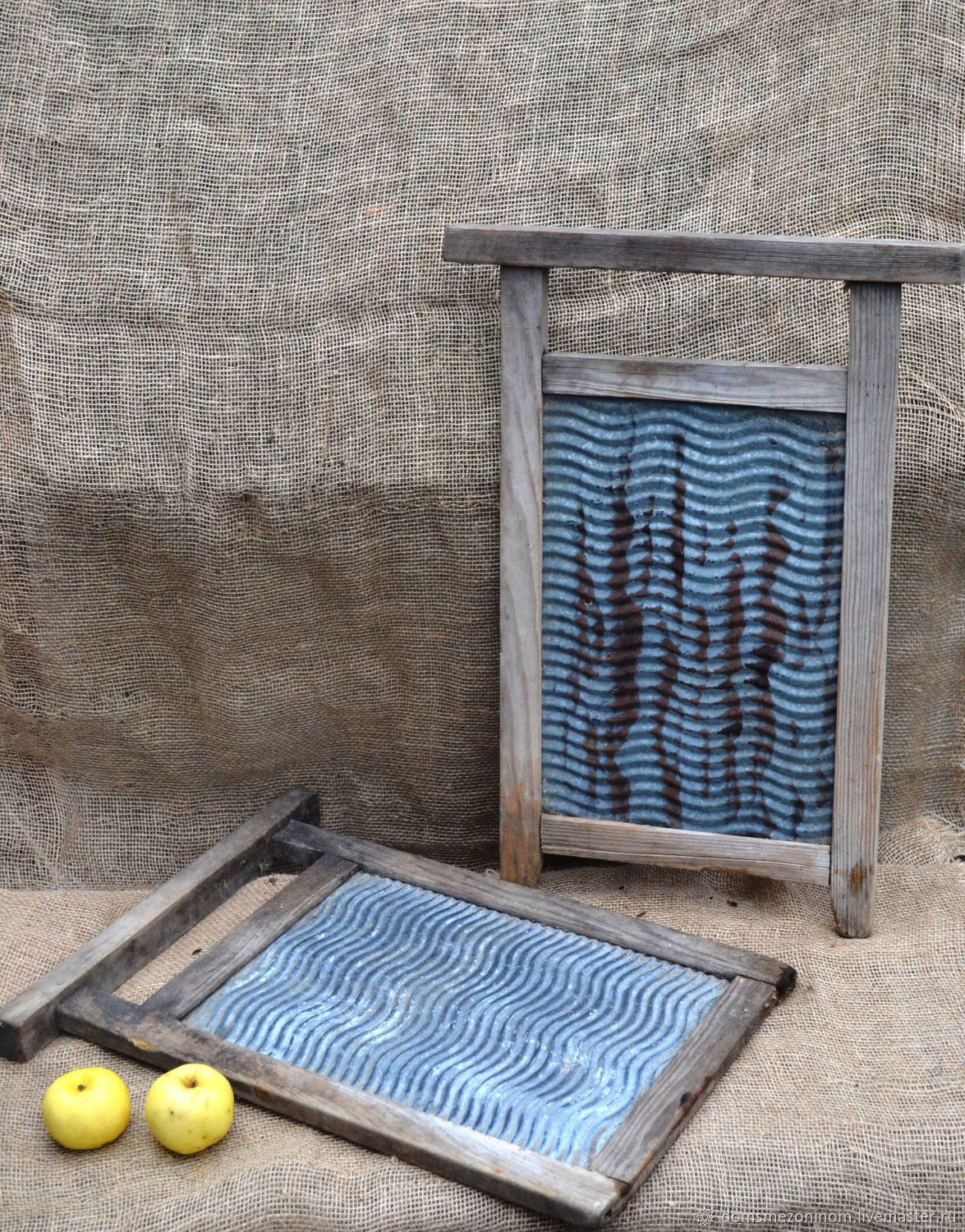
Wash bags
Previously, cellophane bags were in particular short supply, so they tried to save them. And if the package was not torn, but was not clean, then it was simply washed, dried and reused.
Now such foresight seems at least strange, because there are thousands of these products on the market - for every taste, budget, size and color.
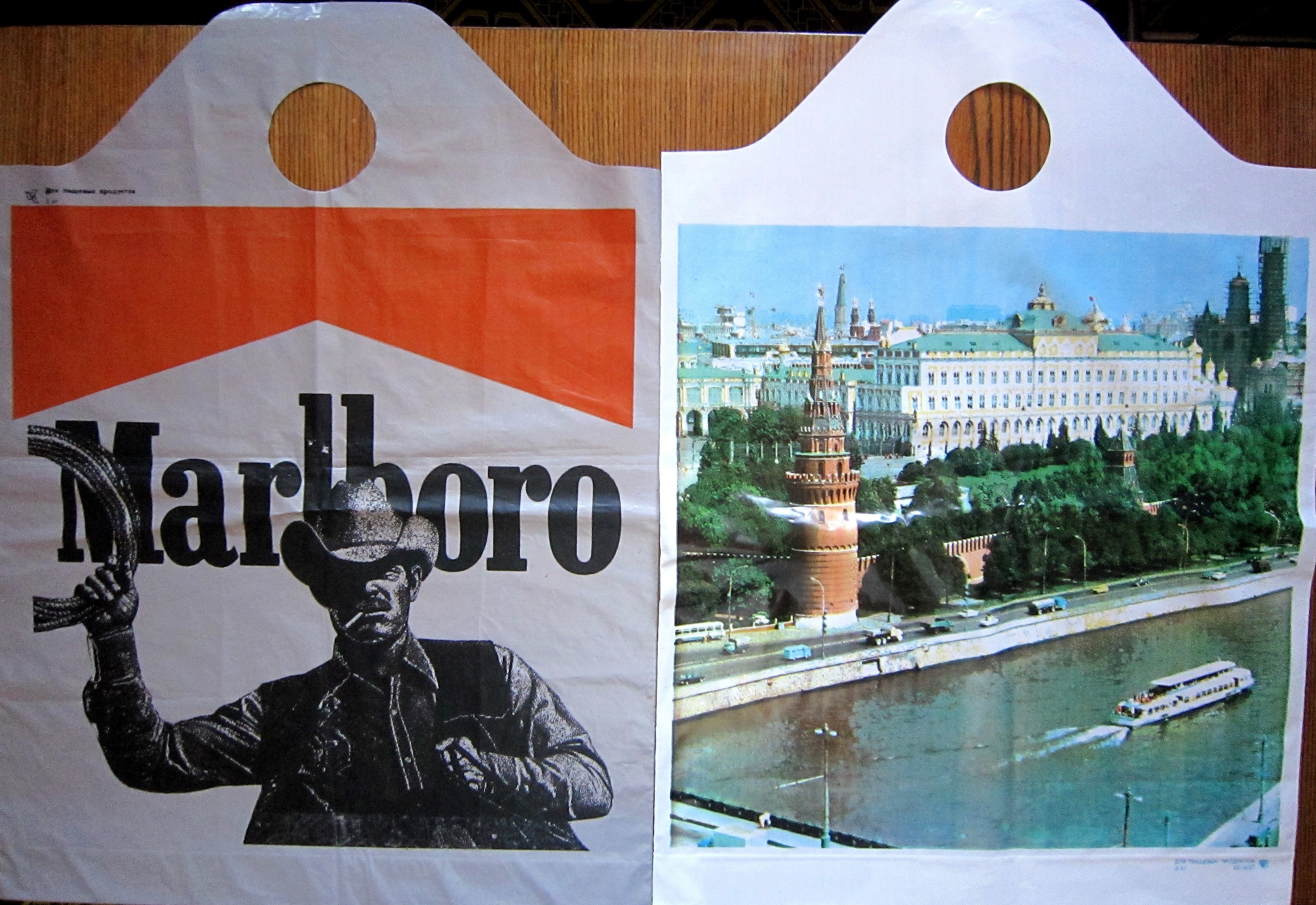
Lay down oilcloth
Wherever they tried to push her. It seems like she was everywhere. Oilcloth was laid both on the tablecloth and under it, and for some reason they covered the walls with it, sometimes they covered the doors. In general, it’s an oilcloth world. No one disputes that the material is quite comfortable and washing it is easy.But at that time, oilcloth looked like something very bright and deafening - flashy shades could cause a headache. And everywhere there are flowers, flowers, flowers.
Nowadays oilcloth is rarely seen. It was replaced by glass tablecloths, which are also easy to wash. But few people think of gluing it on the walls (unless during renovation).

Darn tights
Now I went to the store and bought myself at least five hundred tights and stockings. Previously, nylon products were in short supply. That’s why our mothers and grandmothers had to sew them up if a hole accidentally appeared or an arrow appeared. And even when in a visible place!
However, when the tights were completely worn out and could not be repaired, they also found a use: they stored onions in them, sewed washcloths, made a sieve (for example, to grind berries into jam).
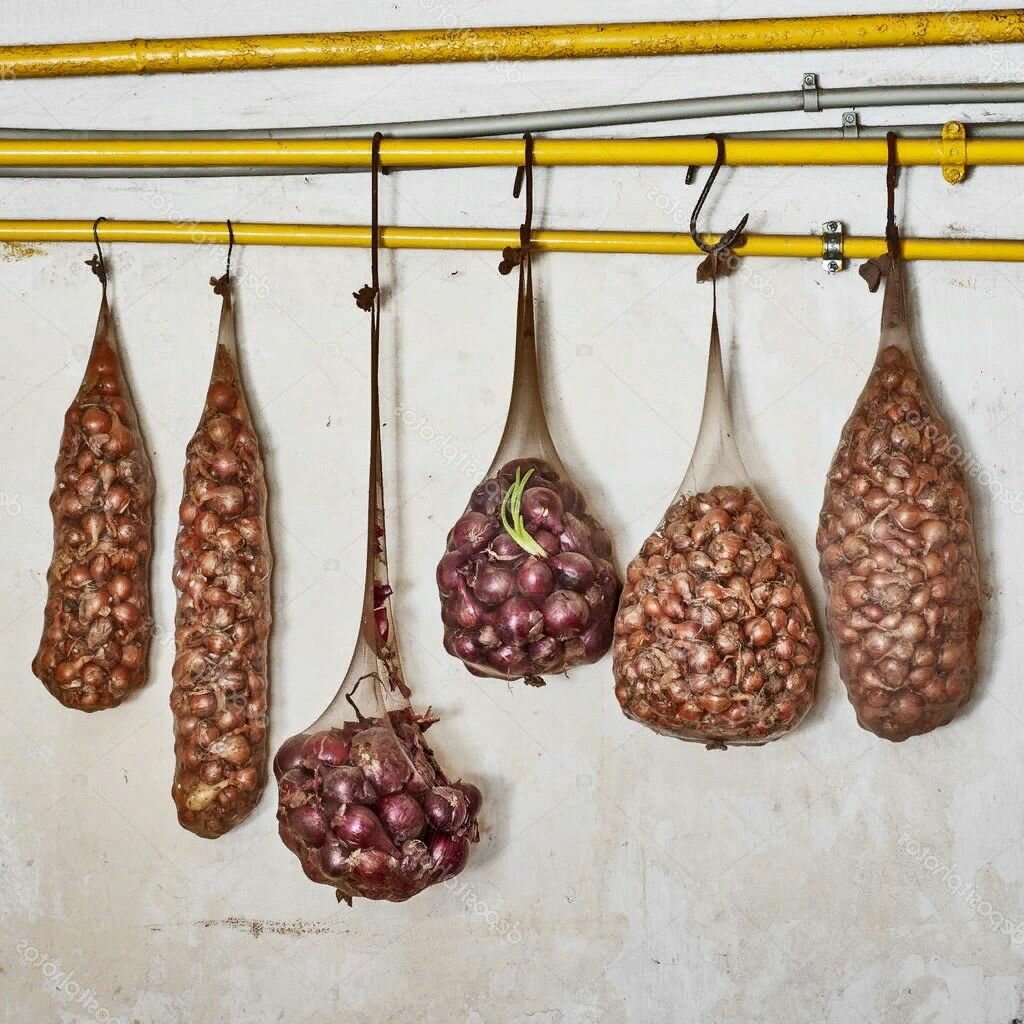
Blue and starch linen
In Soviet times, blue was in the arsenal of almost every housewife. This product was used to refresh bedding and other home textiles, give it color, and make it rich. They did not try to remove stains in this way - bluing was intended only for those cases when it was necessary to remove gray or yellowness from linen. Today, this method of adding color to things is not relevant.
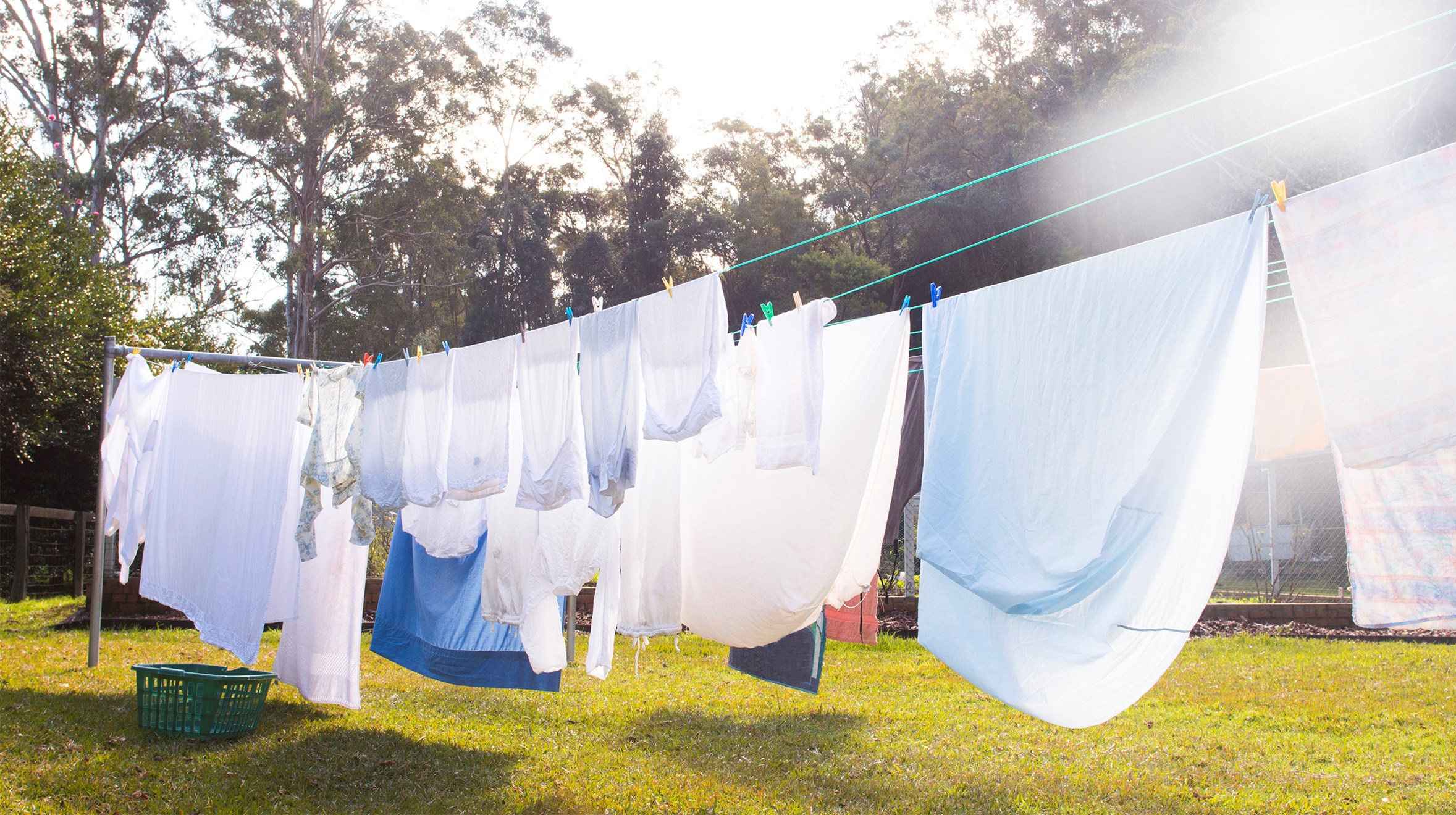
The same applies to starch, which was used mainly for textiles, lace, clothing, bed linen, tablecloths, collars, school aprons, to give them rigidity and protect them from dirt.
Cleaned the windows with ammonia
Now this is also practiced, and it causes negative feelings. Ammonia is the most formidable evil, which is used not in medicine, but in everyday life.The smell from it is, to put it mildly, unbearable, especially if you dilute it in the wrong proportion to clean windows.
Since Soviet times could not boast of such an assortment of products for glass, housewives had to look for any solutions to make the windows shine and there were no streaks. So they found it - ammonia, which, however, coped with its task 100%. Now we can afford to buy a special composition, which also works very effectively.

Cleaned carpets with snow
Perhaps we all know how, with the arrival of the first heavy snowfall, yards were filled with carpets and paths for the purpose of cleaning them. The products were placed directly on snowdrifts and covered with a thick layer of snow. Honestly, the wool really became cleaner and filled with freshness. Now this method is not practiced at all, and if you see something like this somewhere, it will most likely cause extreme bewilderment rather than nostalgia.
Today, the household appliances market is filled with powerful vacuum cleaners with a variety of functions that allow you to clean carpets to perfect condition.
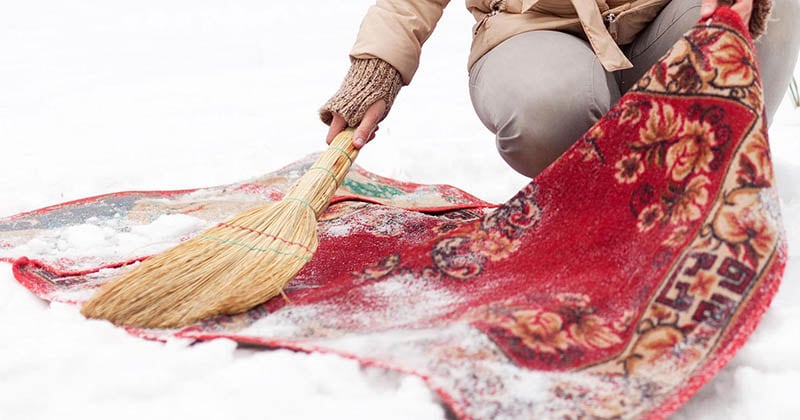
They washed on a board in Tsarist Russia.
You haven’t created anything new, so you’re delving into Soviet stuff.
Yes, and I’d like to add my 2 cents about frying - it seems a bit greasy and not healthy, but there were very few overweight people! Probably from that same fragrant, delicious oil!
What's wrong with frying soups? And I do, and everyone I know does. And if some... somewhere are stewed in water, this is their own business, and not a trend at all.
Tights then cost 7.7 rubles, with a salary of 130 rubles, i.e. 0.06% of salary.
Those. from today’s salary of 40,000 is 2,400 rubles. You definitely won’t buy bags, but you’ll sew them up.
I usually don’t comment on things like this, but the number of duremars and duremars is already really going through the roof.
This year we cleaned carpets with snow. Great !!!!
No vacuum cleaners can clean this way))))
And who might be shocked by this? Girls born in 2003 somewhere? I’ll tell the authors a secret: outside the Moscow Ring Road, not only everyone can afford not only a washing vacuum cleaner, but also glass cleaner and new tights.
Well, the author of the article is stuck in the early 90s, when they didn’t hear about environmental friendliness.Now they either don’t take bags at all, or they reuse them, yes, they wash them, can you imagine? Because they care about the planet. You shouldn’t throw away tights at the first hole either, for the same reasons. Carotene from carrots is better absorbed if the carrots are cooked with fat, so that’s the benefit of frying. In Soviet times, people were much more environmentally friendly than us: repeated use of glass containers, packaging made from recycled paper, string bags, lack of plastic. By the way, ammonia is much less harmful in all respects than chemical window cleaners. So the article is about nothing.
To all that has been said above, I would like to add something very special about boiling laundry. The author writes that after such barbaric treatment of the fabric, the product quickly wore out... But with today’s washing method, the laundry very quickly turns into nothing, since everything is decorated with unwashed stains.
Uh…. 20 years ago they boiled laundry? Don't drive, huh? I gave birth to my first child in 2002, at the age of 27. It's been a long time since anyone boiled anything. Well, maybe just grandmothers and grandmothers (and not those who were 50-60 at that time).
Bags - guys, they're environmentally friendly. This has already been written about here. Well, the rest, yes—much of it is really no longer relevant. But the point is not in the USSR, but in the fact that, in principle, a lot has changed - both aesthetic approaches and new materials are appearing.
Speaking of bags, I have no problem going grocery shopping with a backpack. Eco-friendly and convenient! )
1. Snow cleans carpets better than any dry cleaner (I’m generally silent about vacuum cleaners)))!
2. Wash white socks on a board (who still has one!) - awesome! And the socks are snow-white, and the boys/girls are not white-handed)))
3.Boiling bed linen (but only cotton!!!) is the best option! And the current underwear is disgusting, it’s even disgusting to sleep!
4. Try sleeping on starched linen - find out the difference!
5. Carotene from carrots is only absorbed! with fats, so “frying” is not only tasty, but also healthy!





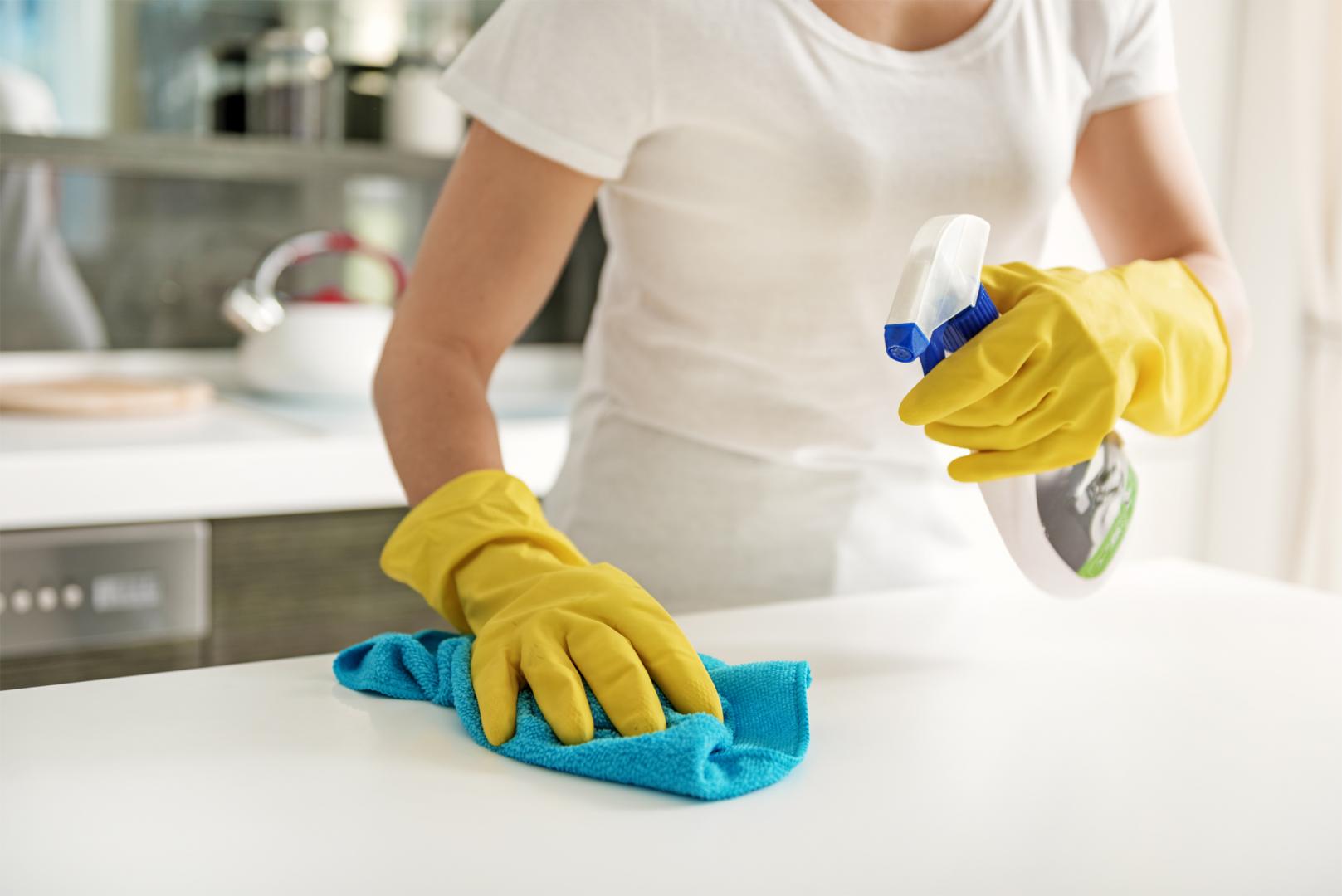
I am a chemist and ecologist and I am surprised at the narrowness of your thinking. Haven’t you read that even the world’s oceans are polluted with plastic bottles and bags, that there are islands made of plastic products? Now in stores they put every little thing in a plastic bag; they actually produce billions of them. Apparently, this is very beneficial for someone.Now people seem to have gone crazy, the main thing for them is money, money, money. By any means, by any means. But in the ground, polyethylene only begins (!) to decompose after 100-150 years and will decompose for many more years. The whole nature has been polluted! And you are surprised that plastic bags were washed in Soviet times. Yes, there were few of them, it’s convenient, but THINK, people, we’ll mess up the whole planet like this! Have you decided to move to Mars?